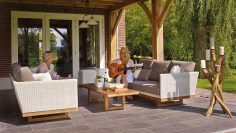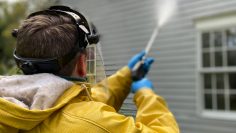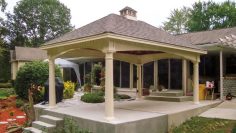
Simple Campsite Etiquette
Summer is on its way and it won’t be long before we’re dusting off the air mattresses, checking the tent for missing poles and heading out to enjoy the great outdoors.
Like any subset of society, campgrounds have a certain form of etiquette to make sure all visitors get to make the most of visiting our beautiful Canadian wilderness. If you’re new to camping – or haven’t broken out the tent in a while – read on for our top tips to improve your family’s holiday and make you Queen (or King) of your next campsite!

Getting There
Whenever possible, try to time your arrival for when there’s still plenty of daylight. Not only will this let you set up your tent when you can still see all the pieces (trust us – you’ll be thankful!), it also gives you a chance to scout out surrounding areas.
Do a quick search of your campsite for any potential hazards before the kids start running around. If the last campers haven’t been considerate enough to remove all their trash, do a quick tidy to make sure there’s nothing dangerous about and you won’t be attracting any unwanted animal visitors during your stay.
Find the quickest routes to the toilets, garbage, and water supplies that don’t pass through any other campsites. Make sure your kids know these routes, as campsites often look similar from spot to spot and they may find navigating tricky (especially at night). In busy sites, a glowstick tied to the tent or car is a great way to identify your home base after a late-night toilet break. You can find them at most dollar stores and they’ll usually last out the night.
If you do happen to arrive when it’s dark, be as quiet and considerate as possible – set up your tent with the minimum lighting you can and leave most of your unpacking for the next day.
Your Campsite Neighbors
Like regular neighbours, your fellow campers will come in all types – some just want to be left alone, others may be more than happy to share food, fires and friendship throughout your stay. Always remember that for most people camping is a retreat and chance to get away from it all. Until you know otherwise, respect your fellow campers’ privacy.
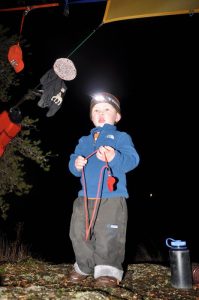
As much as your campsite allows, pitch your tent well away from neighbouring sites. This will maximize privacy and minimize noise for everyone involved.
Never walk through other campsites or allow your kids to play in them unless they’ve been invited. Even if a site is currently empty, you don’t know when someone might be arriving to claim it. Make sure young ones understand where the invisible boundaries of your campsite end so they don’t end up wandering into anyone else’s space.
Don’t hog communal areas (like bathrooms, toilets or any charging stations). If possible, try to use showers and other high-traffic areas at off-peak times or just get comfortable with being a little bit dirty for the weekend!
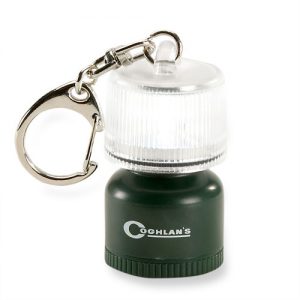
Lighting can be very disruptive to your fellow campers – especially if it shines into their campsite or tent late at night. Avoid using car headlights to illuminate your site and cover the beam of any flashlights with your hand to minimize spread. For best results, give each child (and adult) their own headlamp which points the light exactly where they’re looking and keeps their hands free. Tiny tent lanterns are prefect for gently lighting the whole inside of your tent without wasting batteries on power-hungry flashlights.
Most provincial parks have an 11pm-9am quiet time when no loud music or equipment (such as chain saws or generators) is permitted. Check with park staff to find out the rules of your specific campground – even if a ‘quiet time’ isn’t in place, it’s good form to keep noise to a minimum after dark and in the early mornings. Sounds travel much further at night and tents are far from soundproof!
Foods and Fragrances
You may have come camping to get back to nature but the last thing you want in your campsite are curious and hungry wildlife. Make sure the kids haven’t slipped any snacks or treats into their bags – all food should be packed away in the car or a bear-proof container when not in use.
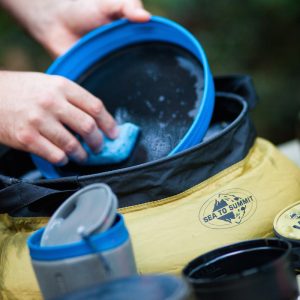
After eating, use a rubber spatula to scrape any food scraps into the garbage and wash all eating and cooking utensils. Never wash dishes in nearby lakes or streams as the food remnants will attract pests both large and small. Food can also clog drains in the communal bathrooms (which will easily earn you the “least valued camper” award from your fellow guests) so don’t be tempted to nip into the bathroom sinks to do the washing up.
For best results, take a portable sink with you and wash dishes with biodegradable camp soap. When you’re done washing, dispose of the dirty water in a designated drain or greywater pit – not in any nearby water source and definitely not near your tent – to prevent tasty smells from lingering. Purpose-designed camp soap is highly recommended; the multi-use formula means you can use it for cleaning everything from dishes to dirty hands, faces and bodies without damaging the fragile park ecosystem!
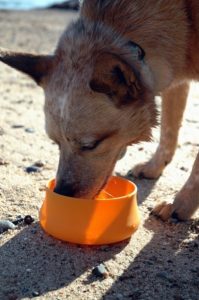
Pets
Always check with your campsite before bringing any pets along on your trip. In Manitoba provincial parks, pets are allowed but must be kept under control at all times – meaning on a leash or in a cage. Make sure your pet does not wander into any other campsites or away from your group and always clean up any messes (just because you’re outdoors doesn’t mean you can neglect the doggie bags!). Pets get hot quickly in summer temperatures and when excited about exploring new areas – always make sure water is available in reach of their leash or cage to help them stay cool.
Campfires
It just wouldn’t be camping without an evening sitting around the campfire – but there are several rules you should always obey to keep yourself and your fellow campers safe. Only build fires in designated pits and make sure you follow all firewood collection rules. In many provincial parks, collecting wood to burn is prohibited – some sites provide wood and in others you may have to purchase logs; check before you go.
Don’t throw anything in the fire that can’t burn (such as cans, bottles or plastic) as these can release unpleasant or even toxic fumes and smells and leave a mess to clean up. Of course never leave fires unattended and always be sure they are properly extinguished each night and when you’re leaving (your portable camp sink makes a great water carrier for this!)
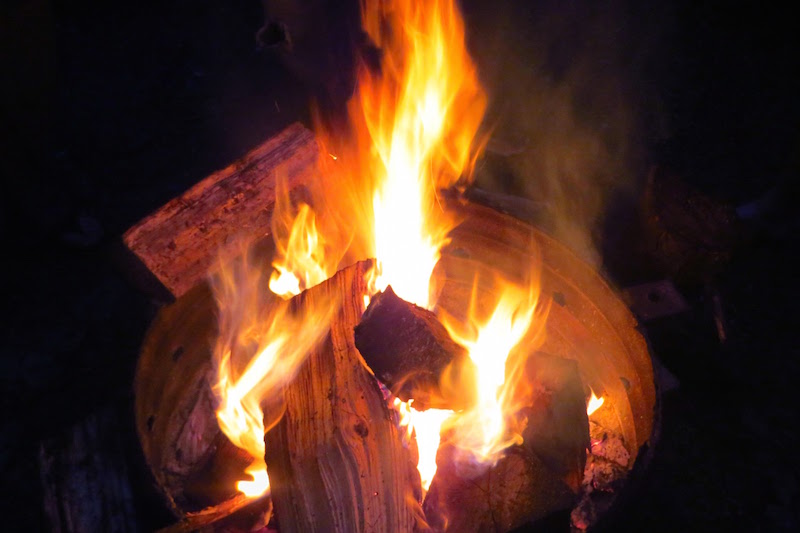
Leave no Trace
The most important rule of camping is to ‘leave no trace’ – and you should always strive to leave your campsite better than you found it. Always have a trash bag handy (especially when preparing food) and make regular trips to dispose of it in the park’s bear-safe containers. Pack unused items back in the car until they are needed so they don’t risk getting missed in the final clean-up.
Once everything’s packed and you’re ready to go, take one last trip around to make sure you haven’t forgotten anything. Any cans tucked under the picnic table? Skewers left near the fire? Forgotten tent pegs still in the ground? Leaving your campsite in a pristine condition is the most fundamental form of campsite etiquette – and all you who do so can share the site next to ours anytime!
Wilderness Supply is Winnipeg’s local outdoor store, with two locations in the city – 623 Ferry Road and 42 Speers road (just off Lagimodiere). For over 20 years they have been providing gear and advice to campers of all types, from hardcore hikers to family car-campers. Contact information and opening hours can be found at www.WildernessSupply.ca





